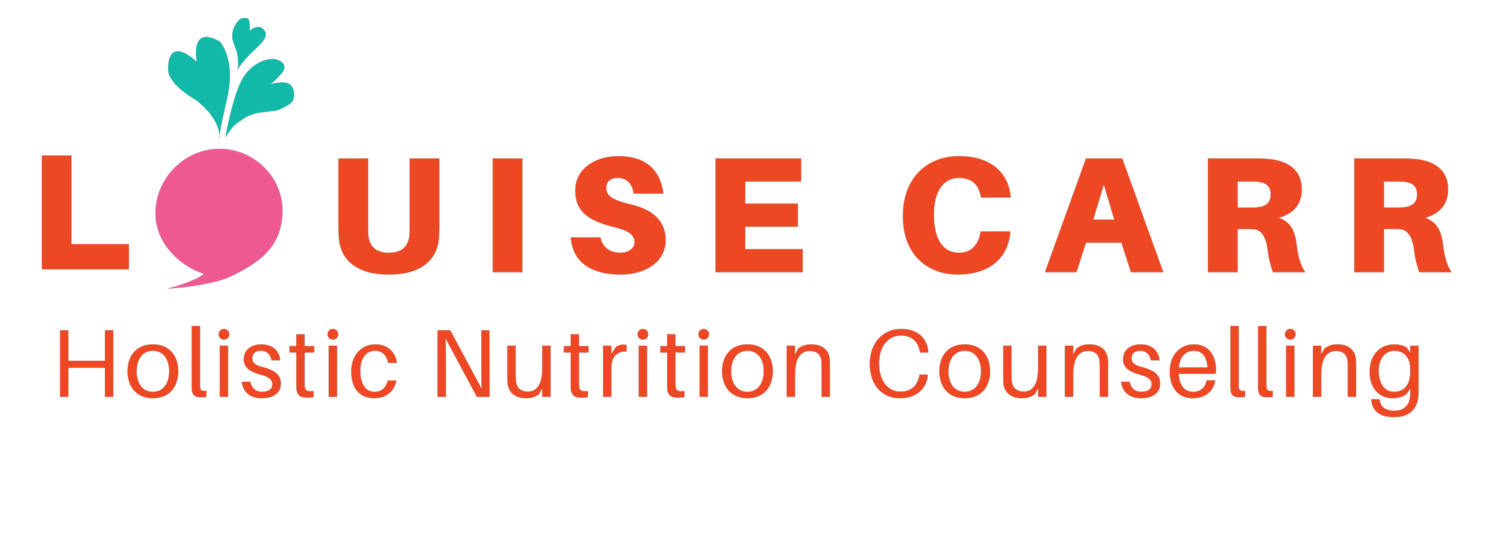It is easy to feel like you are broken when your peri-menopausal symptoms are out of control and your life is being wrecked by uncomfortable and embarrassing hot flashes and covers-on, covers-off night sweats.
If you gain weight around your middle and none of the strategies you used to drop pounds in the past are working for you, it feels like your metabolism is working against you and your midlife body hates you.
Symptoms such as hair loss, vaginal dryness and night time anxiety are just so personal and distressing, it is easy to feel like a victim and as if something has gone horribly wrong with your brain or body.
In reality, peri-menopause, the ten years leading up to menopause (defined as being one year without a period) is a natural period of hormonal change that your body is primed to manage.
Research tells us that our experience of menopause is influenced by how we think about this stage of life, our opinions and feelings about what is to come in the next chapter. If we have heard horror stories from our Mother or have a deep fear of aging then we are going to experience more and stronger symptoms than if we feel good about living a full and happy life and are comfortable with the thought of aging.
In truth, our body is talking to us all of the time and the language it uses is symptoms.
It helps when we know what these symptoms are telling us but unfortunately it is extremely hard to get this information in a conventional medical environment. Most doctors only have 1 day of their training allocated to the science of nutrition and 2.5 hours on the menopause. Your medical practitioner may not have the answers you need about what you are experiencing at midlife and will revert to the standard advice of “Eat less and Exercise more”. This is unhelpful for midlife women and can further imbalance hormones.
New research is telling us that a healthy microbiome helps us to metabolize estrogen and can be preventative of hot flashes and reduce our risk of breast cancer.
We now know from science that early and strong hot flashes are an indicator of poor cardiovascular health and are a predictor of a future heart incident.
We are learning from the dedication of female doctors such as Dr Lisa Mosconi, who want to expand the knowledge base of womens health, that the early indicators of dementia and Alzheimers disease in women come during menopause and we need to be eating to protect our brain health.
Medicine is a male dominated practice/industry and research is only now being initiated into many aspects of womens health, including menopause.
Our symptoms do not mean that our midlife bodies are broken but that our body is talking to us and telling us (some times in a very loud voice!) that we need to come home to ourselves at midlife and pay full attention to our health.
What is required from us at midlife when we hear these messages is not a band aid to cover them up, but a return to self-love and self-care and a health journey that sees us making changes to our nutrition and lifestyle, one baby step at a time. You need to be gentle and compassionate with yourself and at the same time form boundaries, delegate what exhausts you and start to fuel yourself right.
Menopause is a very unique female opportunity to return to our bodies, listen in and offer ourselves deep nourishment and self-care so that we cruise through this natural period of hormonal change with energy, flexibility and confidence to emerge in the best health of our lives at midlife.
Let’s get started!
Eggs in Purgatory
One of the important ways we can support our brains to be free of overwhelm and anxiety, even in challenging times is by eating the dense nutrition our brains and nervous system need to thrive.
Nutrition and healthy food is the first line of self-care for midlife women.
All of our neurotransmitters use the building blocks of amino acids in their formation, so a diet rich in protein supports our best mental health and helps to prevent anxiety and depression.
Eggs are a wonderful and cost effect way of bringing protein into your diet. Always buy the best quality you can afford. When cooked gently to reveal a soft yolk, they remain rich in the nutrient choline. Choline is then used to build the neurotransmitter acetylcholine which help with our thinking skills or cognitive function. Choline is also hugely supportive of liver health if you have symptoms of fatty liver disease from excess alcohol or sugar in the diet or are experiencing severe peri-menopausal symptoms.
The hellish purgatory that will cook these eggs is a highly flavoured and spicy tomato sauce. Chopped olives, garlic, anchovy, parsley and capers give this dish a fabulous flavour boost that also provides dense nutrition for your brain.
Capers are a high source of quercetin which helps to bring down inflammation across the body. This is important as new research is showing us that there is a link between depression and inflammation from alcohol or excess sugar in the brain.
Olive oil and olives alongside anchovy provide mono saturated fats and omega 3 fatty acids respectively. Both help to fight inflammation and research gives us plenty of evidence that omega 3 fatty acids help to reduce the symptoms of depression.
Parsley adds vitamin C, a well known anti-oxidant to this dish and the tomatoes contain lycopene another well researched anti-oxidant. The volatile oils found in the herb oregano have been shown to both modulate our mood and memory. Oregano oil actually slows the re-uptake of happy and motivational neurotransmitters such as serotonin and dopamine. Isn’t there a medication for that? With food and a healthy diet there are no side effects on the packet.
Served for breakfast, lunch or dinner this is an easy to prepare, family-friendly dish that delivers a powerful nutritional punch for brain health. Eggs in purgatory tastes delicious served on a good sourdough toast or with a side of winter slaw.
Ingredients
1-2 tbsp extra virgin olive oil
1-2 cloves fresh garlic
1 big handful fresh parsley
1/4 cup pitted black olives
1 tbsp capers
1-2 (or go with your heart) anchovies
1 tsp dried oregano
1/8th tsp dried chilli flakes
1 14oz can chopped tomatoes
1 - 4 eggs
1/4 cup parmesan or pecorino cheese
Toast
Instructions
On a clean chopping board place your garlic clove, parsley, black olives, capers and anchovies (I used half of a small can of anchovies)
This is where you get to vent your frustration by chopping all of the ingredients together small enough that it begins to form a paste on the board. Go crazy and think of everything that is stealing your equilibrium as you wield the knife!
Heat the olive oil in a pan and scrap the chopped ingredients into the heated oil to give them a sizzle.
Add the oregano and chilli flakes to taste.
Once the garlic is softened add the can of chopped tomatoes and simmer on a low heat for two minutes.
Form one to four dimples in your tomato sauce and break a fresh egg into each dimple.
Keep simmering the sauce and place a lid over the pan.
Cook until the eggs are just solid with some jamminess to the yolks.
This recipe needs no further salt due to the anchovy but pepper would add a further kick.
Rewiring your Brain for Happiness
“Remember happiness does not depend on who you are or what you have; it depends solely on what you think.
- Dale Carnegie -
As we raise a glass and pass through another New Years Eve and into our second year in a global pandemic there has been a dramatic change in the way we talk about our mental health and happiness.
We used to be all about aiming high, hustling and pushing through and now we talk about the importance of rest, self-care and connection for our mental health.
Positive mental health has a huge impact on our physical health. Our heart health, body weight and sleep all improve when our mental health is optimal. There are repeated studies that demonstrate that a womans experience of her own menopause depends on her attitude towards this natural hormonal change with women who view peri-menopause as a negative process experiencing more and stronger negative symptoms in the process.
Yanikkerem E, Koltan SO, Tamay AG, Dikayak Ş. Relationship between women's attitude towards menopause and quality of life. Climacteric. 2012 Dec;15(6):552-62. doi: 10.3109/13697137.2011.637651. Epub 2012 Feb 15. PMID: 22335298.
The truth is that neurons that fire together wire together. This means that thought pathways that we travel along daily become our outlook on life and our worldview or as neuropsychologist Rick Hanson states “lasting mental states become lasting mental traits.”
The care and curation of our personal mental health needs to be a daily priority for all of us BUT especially for empowered midlife women who are family matriarchs, cross generational carers and mothers.
We can begin the journey of caring for our mental health with baby steps starting with only only minutes each day and building into.
Here is my three step starter plan for bringing more joy and calm to your life.
1. Turn off the news. News media is in the business of click bait and managing your reality. Human brains are wired to respond when they sense danger or threat and so news media gravitates towards violence and negative bias in it’s reporting. All of the good news stories go under the radar. Screening this constant low of negative information out of your life will bring you peace on a daily basis.
2. Begin a Gratitude Practice. Spend five minutes each evening thinking about your day and everything you are grateful for from the last 24 hours. When we make a practice of focussing our appreciation on the good stuff in our lives we wire in the pathways for more appreciation and gratefulness. A regular gratitude practice helps to relieve stress and eases pain. Taking five minutes each day to feel grateful improves your physical health over time and can positively change the brain function of people experiencing depression.
3. Get outside and walk in the fresh air. Taking time everyday to walk outside even for just 15 minutes reduces stress in the body especially of we can get near nature and greenery, even if we live in a city. Walking boosts circulation and promotes oxygen supply to the brain, it reduces stress in the body and has a positive impact on the microbiome of our gut. Repeatedly studies have shown us that our microbiome loves for us to take a walk during the day. We now know that the majority of the serotonin, our happy hormone is found in our gut and that the health of our microbiome directly impact our happiness and mental health. Getting up and walking your microbiome daily is a fabulous way to build happiness and health in your body.
Taking a few minutes each day in a consistent routine that supports mental wellbeing during a time in life when you experience significant hormonal change or during periods of hardship, keeps you grounded and free of anxiety. Mental self-care will support you to build an empowered matriarchal mindset that will help you to prioritize yourself at midlife and make positive choices for yourself.






